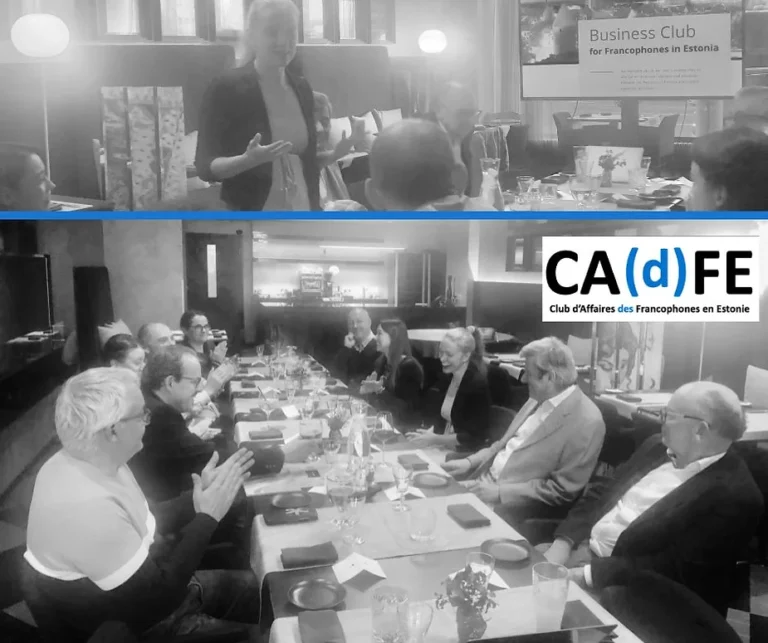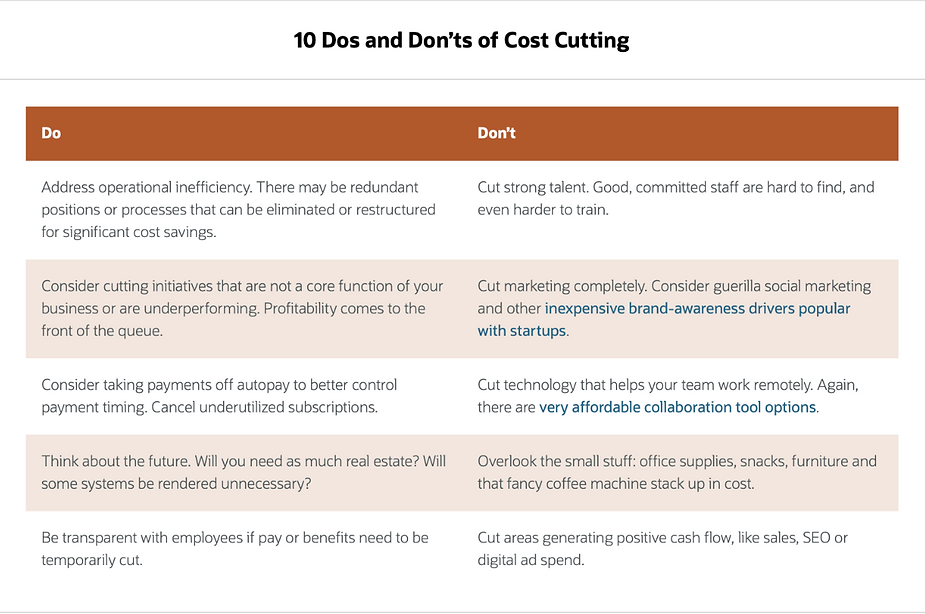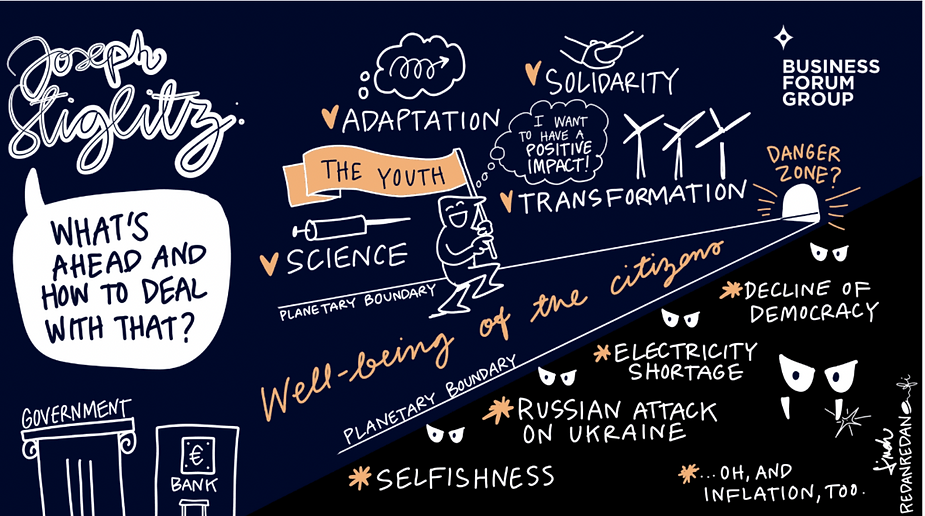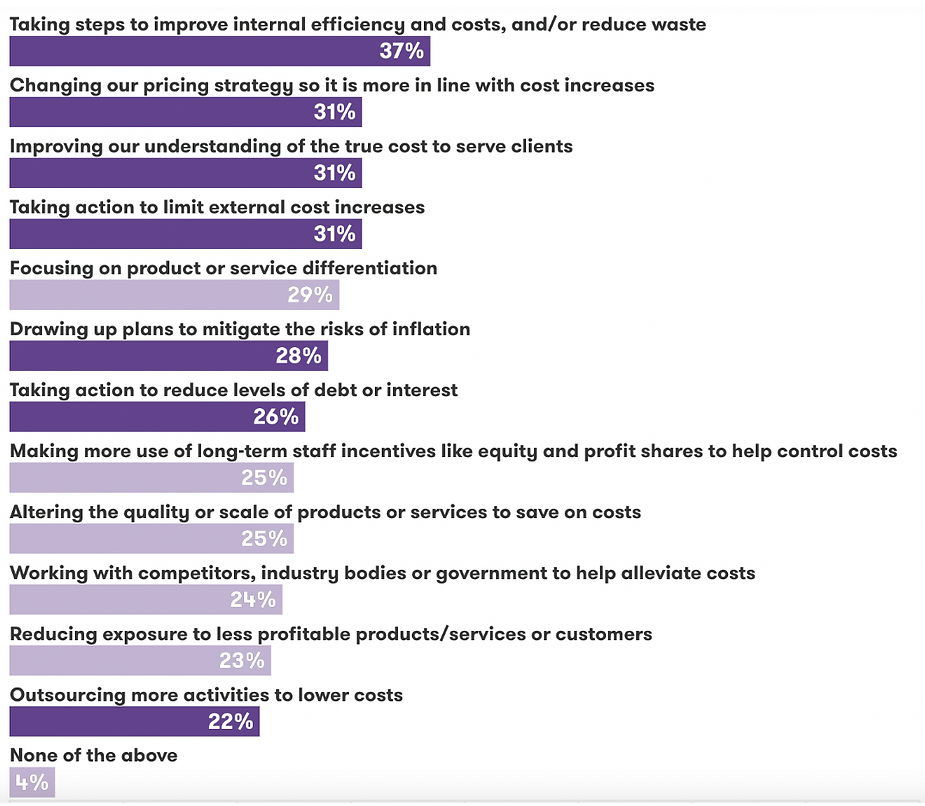
A look back at CA(d)FE's first Meet and Share

CA(d)FE’s first Meet and Share took place on September 22 at the Palace Hotel in Tallinn.
Around twenty of us got together to exchange ideas and debate in a friendly atmosphere.
Mark your calendars now, as “Meet and Share” will take place every 3rd Thursday of the month at the Hotel Palace.
The next one will take place on Thursday, October 20.
Participation is free for CA(d)FE members.
The October event will be organized around the theme :
– If you’re an expatriate: What was your biggest surprise when you arrived in Estonia?
Last Thursday, we had a presentation on :
followed by testimonials and a wide-ranging discussion.
Inflation stems both from persistent supply chain problems linked to the Covid crisis, and from EU sanctions against Russia and Belarus following Russia’s invasion of Ukraine, also creating an energy crisis in European countries.
Rising consumer prices combined with labor shortages and supply chain bottlenecks are forcing companies to rethink their strategies.
-
Transparency on the selling price of the company’s services or goods is a good start; for example, Uber has dealt with rising fuel prices by introducing a fuel surcharge.
This sends a clear message to customers that the price increase is a temporary and necessary measure. -
In sectors where supply is limited and buyers have few alternatives to negotiate, the creation of a fully traceable “end-to-end” value chain helps to strengthen the company’s operational resilience.
We have gathered some information from the HBR (Harvard Business Review) :
Note that remuneration is the top priority for only one in five employees, while flexible working is among the top three priorities for half of them.
First and foremost, take stock of your entire value chain and its exposure to supply chain shocks.
Understand your capital structure: Restructure your loans, obtain new lines of credit and maintain an adequate capital cushion.
Pay close attention to Fed policy and announcements from your central bank and the ECB.
In times of talent shortages on the job market, it’s important to look after employee morale.
Be more flexible in accommodating their personal needs, for example by letting them work from home, which can boost employee productivity.
-
3 strategies that become much more important with high inflation:
-
quickly adjust prices,
-
give priority to high-margin products,
-
modify inputs according to relative price trends.
We’ve also shared the do’s and don’ts of using Oracle Netsuite.
We then discussed the results of a survey of 5,000 companies conducted by Grant Thornton in May and June 2022, on measures taken or planned to address rising costs and inflation concerns.
When we shared the latest statements from the Central Bank of Estonia as published in ERR on September 20, 2022, the entrepreneurs around the table could only share their surprise at the discrepancy between the figures presented in the article and the reality they encounter in their businesses.
The statements in the article have fuelled much discussion:
1. Inflation is forecast to be around 19% this year, mainly due to rising energy costs.
Inflation is expected to fall to around 7% next year, and to 2% in 2024.
2. The economy will contract by 0.5% over the year as a whole, before growing by around 1% in 2023, and 3.5% in 2024.
3. The average gross monthly salary will rise very rapidly this year and in 2023, with increases of over 10%. However, real wage purchasing power will not return to its 2021 level until the end of 2024.
4. Unemployment is expected to remain at around 6.5% this year, rising to 8.6% in 2023.
We ended the discussion on this topic with Joseph Stiglitz‘s best inputs, taken from his speech at the Nordic Business Forum in Helsinki on 21.09.2022.
-
“Raising interest rates won’t produce more oil. It may lead to an unnecessary recession.”
-
Peacetime economic measures, such as the deregulation of energy markets and the absence of exceptional taxes, cannot work in wartime, and policy must change.
-
This work has already begun, with several European countries announcing energy price caps which, along with other fiscal measures, will start to bring inflation down.
-
The choices made by leaders today will have an impact on the world we pass on to tomorrow’s generation.
“Let’s try not to destroy it before we act.



Contact us!

✉ contact@ccife.ee
CCI France-Estonie is proudly affiliated to CCI France International, the worldwide network of French Chambers of Commerce and Industry.
Download the CCIFI Connect application
Accelerate your business thanks to the 1st private network of French companies in 94 countries: 119 chambers | 33,000 companies | 4,000 events | 300 committees | 1,200 exclusive advantages
Exclusively for members of the CCI Françaises à l’International, discover the CCIFI Connect app.
Website
Stay informed!
Made with ❤ by Cycoma
Copyright 2024 Chambre de Commerce et d’Industrie France Estonie
Contact us!

✉ contact@ccife.ee
CCI France-Estonie is proudly affiliated to CCI France International, the worldwide network of French Chambers of Commerce and Industry.
Download the CCIFI Connect application
Accelerate your business thanks to the 1st private network of French companies in 94 countries: 119 chambers | 33,000 companies | 4,000 events | 300 committees | 1,200 exclusive advantages
Exclusively for members of the CCI Françaises à l’International, discover the CCIFI Connect app.
Website
Stay informed!
Made with ❤ by Cycoma
Copyright 2024 Chambre de Commerce et d’Industrie France Estonie



